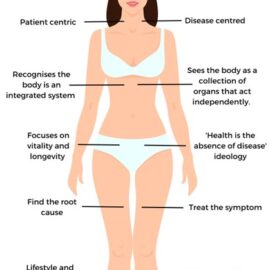
We all know we need to exercise. Isn’t a regular walk or run going to be enough to keep us healthy and strong during lockdown? Not quite.
The NHS advises adults to do 150 minutes of moderate or 75 minutes of vigorous exercise each week. This goal is often included on smart watches and apps used to track weekly activity. The guidelines also advise you to do strength training, using all muscle groups in the upper and lower body, on two or more days a week.
Why, you may wonder, is strength training important enough to be included in the guidelines? Scientists have found that strength training has many benefits for both physical and mental health. You don’t need to lift weights to start strength training. You may be already be doing some yourself, and you can easily include a bit more of it in your daily life. As osteopaths we can advise you how to safely add strength training to your weekly routine.
Better bone health
Strengthening your muscles contributes to good bone health. Bones contain a blood supply to provide nutrients and a rich environment of cells. Loading muscles signals the cells to keep bones strong and healthy. Activities, such as climbing, help children to develop a healthy skeleton. As we get older, strength training delays the decline in bone density that happens naturally to everyone after the age of 50.
Improved mental health and wellbeing
Researchers have found that strength training reduces anxiety and depression and improves self-esteem. How this happens is not known, but we think that physiologically it releases feel-good endorphins and might change the neural pathways associated with mental health. On a psychological level, weight training can distance you from troublesome thoughts and increase your confidence as you gain strength.
Reduction in pain
Strength training can help relieve a number of musculoskeletal complaints. Some research studies have found that strength training of the lower body reduces the pain of knee and hip osteoarthritis and can alleviate low back pain. This is why during an appointment we give you simple exercises, often including strength training to help strengthen the muscles surrounding your joints.
What exercise counts as strength training?
Strength training is different from cardio exercise such as running or cycling, which make your heart and lungs work harder than usual. It is any exercise that makes your muscles work harder than usual. At home you can use equipment such as dumbbells or your own body weight, for example when doing press ups. There is lots of advice online about using home equipment.
You can include strength training in your daily routine even if you do not want to lift weights or use other equipment. Everyday activities such as carrying heavy shopping, gardening and climbing stairs all count towards your weekly strength training goal. Exercise such as Tai Chi, yoga or pilates are good ways of developing strength and relaxing and you can find online classes to follow at home. You can also change exercise you already do, for example including a hill climb on a walk or cycle route.
Is it for me?
You can start strength training at a level to suit you. Any is better than none. In most cases, strength training is safe for adults with medical conditions. We can answer any questions or concerns you might have. We will also ensure you know which exercises are safe and how to avoid injury.
Further reading
Lifting weights may help depression – article
Mental health benefits of strength training in adults
NHS Exercise – physical activity guidelines for adults 19-64
UK Chief Medical Officers’ Physical Activity Guidelines
Article by Angela Winchester, Osteopath at Coulsdon Osteopathic Clinic

